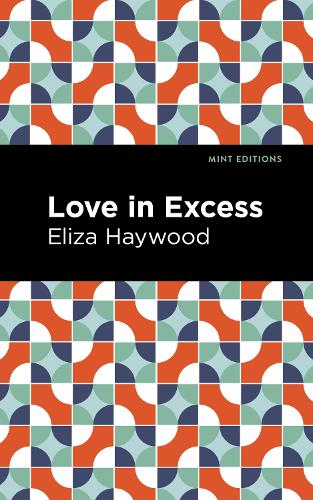
Love in Excess
(Hardback)
Publishing Details
Love in Excess
By (Author) Eliza Haywood
Contributions by Mint Editions
West Margin Press
West Margin Press
24th May 2022
United States
Classifications
Physical Properties
Hardback
210
Width 127mm, Height 203mm
Description
Love in Excess (1719-1720) is a novel by Eliza Haywood. Published in three parts by printer William Chetwood, the novel marked Haywood debut on the London literary scene. It was an immediate bestseller, going through several reprintings in Haywoods lifetime. Love in Excess is considered a prime example of the popular genre of amatory fiction, which often used love triangles to expose the imbalance between male and female desire in a patriarchal society. Like all young aristocratic women of their time, Alovisa and Amena are expected to wait for a marriage proposal to fall into their laps. Forbidden from expressing her desires, Alovisa decides to send an anonymous letter to the handsome, rakish DElmont. When he receives it, however, he thinks it has been sent by Amena, whom her promptly begins to pursue. Disappointed, Alovisa conspires with Amenas fatherwho disapproves of DElmontto have her rival sent to a convent. Although Alovisa ends up with her beau of choice, she soon realizes that desire has a funny way of concealing a lovers true nature. With a beautifully designed cover and professionally typeset manuscript, this edition of Eliza Haywoods Love in Excess is a classic of English literature reimagined for modern readers.
Author Bio
Eliza Haywood (1693-1756) was an English novelist, poet, playwright, actress, and publisher. Notoriously private, Haywood is a major figure in English literature about whom little is known for certain. Scholars believe she was born Eliza Fowler in Shropshire or London, but are unclear on the socioeconomic status of her family. She first appears in the public record in 1715, when she performed in an adaptation of Shakespeares Timon of Athens in Dublin. Famously portrayed as a woman of ill-repute in Alexander Popes Dunciad (1743), it is believed that Haywood had been deserted by her husband to raise their children alone. Popes account is likely to have come from poet Richard Savage, with whom Haywood was friends for several years beginning in 1719 before their falling out. This period coincided with the publication of Love in Excess (1719-1720), Haywoods first and best-known novel. Alongside Delarivier Manley and Aphra Behn, Haywood was considered one of the leading romance writers of her time. Haywoods novels, such as Idalia; or The Unfortunate Mistress (1723) and The Distressd Orphan; or Love in a Madhouse (1726), often explore the domination and oppression of women by men. The History of Miss Betsy Thoughtless (1751), one of Haywoods final novels, is a powerful story of a woman who leaves her abusive husband, experiences independence, and is pressured to marry once more. Highly regarded by feminist scholars today, Haywood was a prolific writer who revolutionized the English novel while raising a family, running a pamphlet shop in Covent Gardens, and pursuing a career as an actress and writer for some of Londons most prominent theaters.
